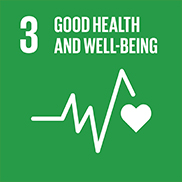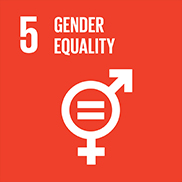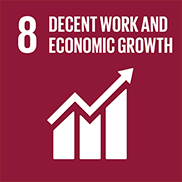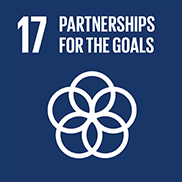In 2018, we conducted 9,518 audits to identify and evaluate the working conditions at our suppliers and manufacturers; we applied 417 corrective action plans to help them do better. In parallel, we continued to collaborate with benchmark-setting sector organisations to tackle the common challenges facing the industry. We have identified seven priority areas to enhance the wellbeing of over two million people working in our supply chain.
At Inditex, we can trace our products all the way back to the first link in the production chain.
Our alliances
Our supply chain is exposed to multiple social challenges as it is populated by suppliers from 43 markets who do not work exclusively for Inditex. To tackle those challenges, we collaborate with the following leading international organizations:
- IndustriALL Global Union
- ILO
- United Nations Global Compact
- Ethical Trading Initiative
- ACT (Action, Collaboration, Transformation)
- Accord on Fire and Building Safety in Bangladesh
- Better Than Cash Alliance
The worker at the centre
Our efforts to track, assess and constantly enhance our supply chain have prompted us to establish seven priority areas of work to guarantee the wellbeing of the those working in our factories.
We encourage worker participation and foster their freedom of association
- We provided union-related training to 114,094 workers at 86 suppliers and manufacturers in Bangladesh, Bulgaria, Romania and India.
- We developed programmes in cooperation with IndustriALL at 41 factories in Turkey, India and Bangladesh which employ 74,093 people.
We encourage living wages in the industry through worker empowerment
- We organized trainings for 114,094 workers from 86 suppliers and manufacturers in India, Bulgaria, Romania and Bangladesh.
- We helped improve management systems at 25 factories in China, India, Portugal, Pakistan, Turkey and Argentina where 18,013 people work in total.
Our purchasing decisions are framed by sustainability criteria
- We trained 142 buyers in sustainability.
- We trained 154 suppliers in responsible purchasing practices.
We promote gender equality and women's empowerment
- Women's health programmes took place in 13 factories in Morocco and India which employ 9,414 people.
- Empowerment projects took place at 8 factories in India, Turkey and Bangladesh where 8,332 people work.
We are committed to the provision of safe and healthy workplaces
- We provided training at 10 factories in India, Pakistan and Bangladesh where 43,290 people work.
- We monitored the implementation of the corrective action plans defined by the Bangladesh Accord.
We protect migrant workers' rights
- Awareness programmes took place at 41 factories in Turkey and China where 6,263 people work.
- 140 individual remediation plans were organised in collaboration with the Refugee Support Centre in Turkey.
We share our sustainability culture with all of our stakeholders
- 1,107 suppliers were trained in collaboration with IndustriALL, the ILO and ACT.
- 557 external auditors were trained.
2014-2018 strategic plan in review
In the last five years, we have reiterated our commitment to the United Nations Guiding Principles on Business and Human Rights and took the steps needed to ensure our suppliers and manufacturers comply with our Code of Conduct.
The following outcomes from the plan are worth highlighting:
- We have embedded sustainability principles into our buying practices.
- 13,272 traceability audits and traceability training were provided to over 800 suppliers.
- 42,173 social audits and training were provided to over 1,000 external auditors.
- 2,458 corrective action plans and over 3,000 human rights training sessions were provided to suppliers.
- Training was provided to more than 2,500 Inditex employees on sustainability matters.
- We created the 'Worker at the Centre' programmes under which more than 25 projects have been completed.
- We reinforced our global alliances:
- Initiation of the ACT initiative in 2015.
- Agreement with the ILO with a focus on the cotton supply chain.
- Renewal of the Bangladesh Accord.
Our priority for the next four years is to deepen our understanding of our workers' needs by addressing them directly, framed by our strategy, 'Workers at the Centre 2019 - 2022'. We will continue to work with the relevant stakeholders, particularly those in closest contact with the workers in our supply chain, who have the best insight into their concerns and needs.
SDGs contributed to:





